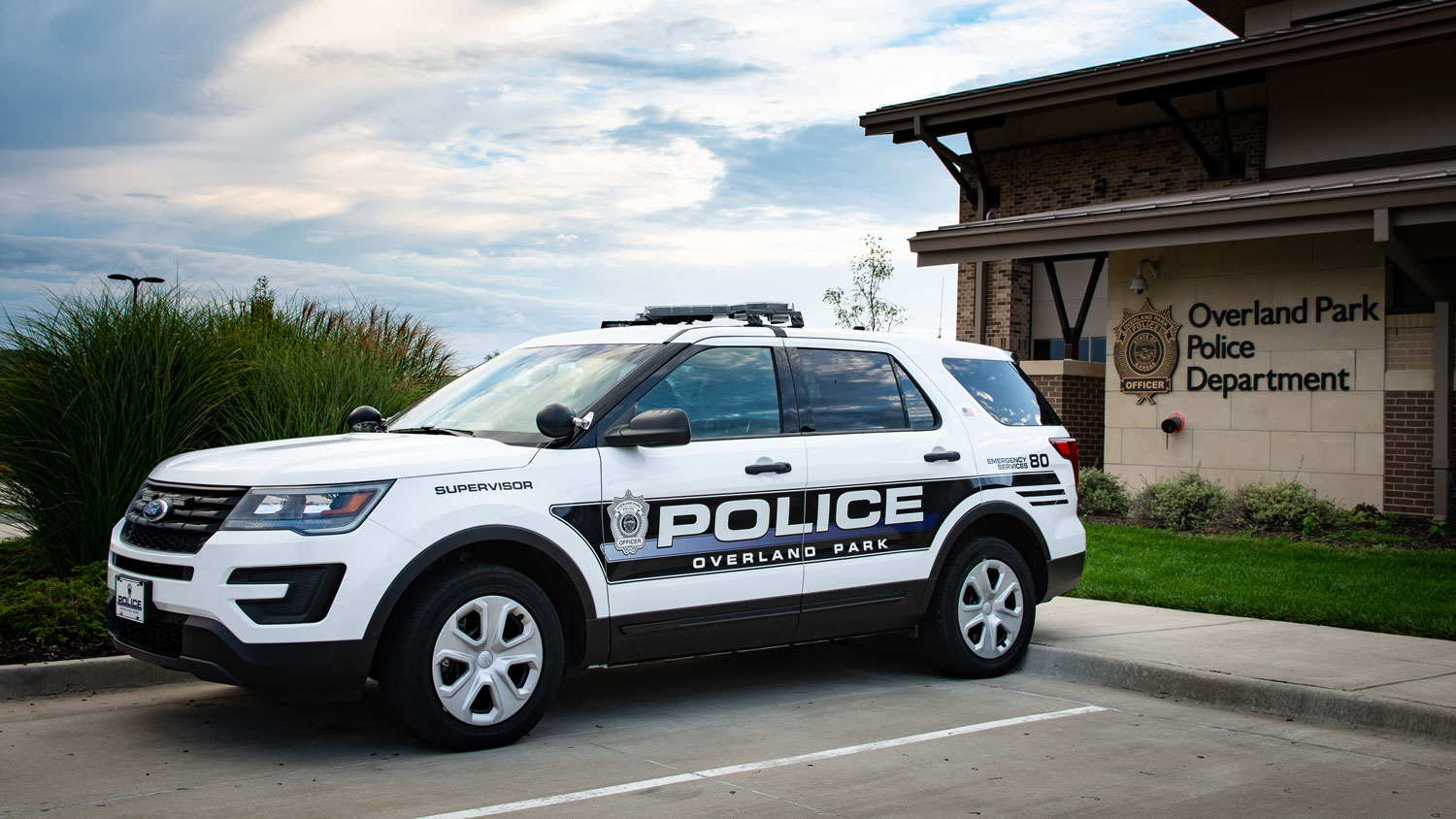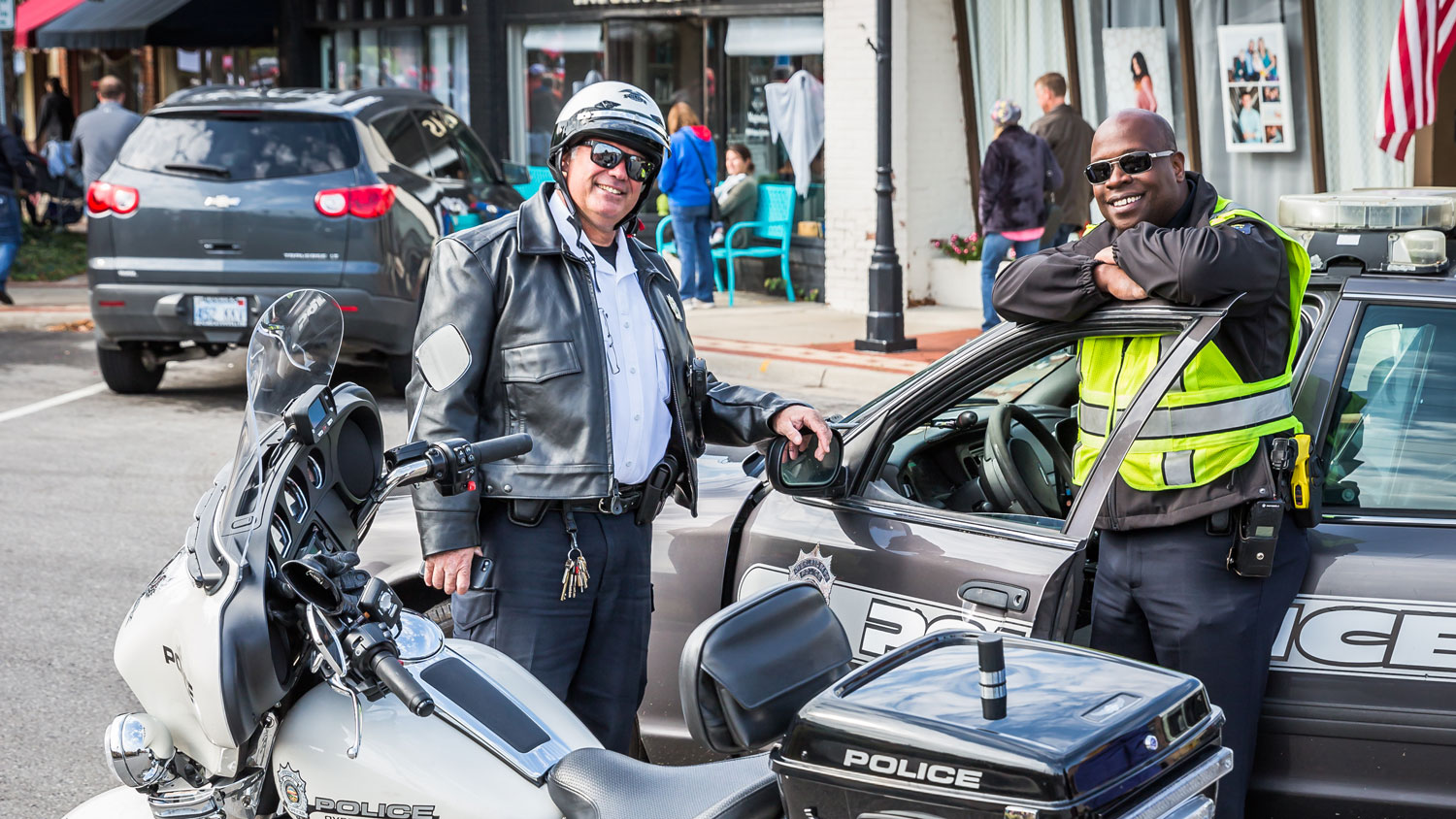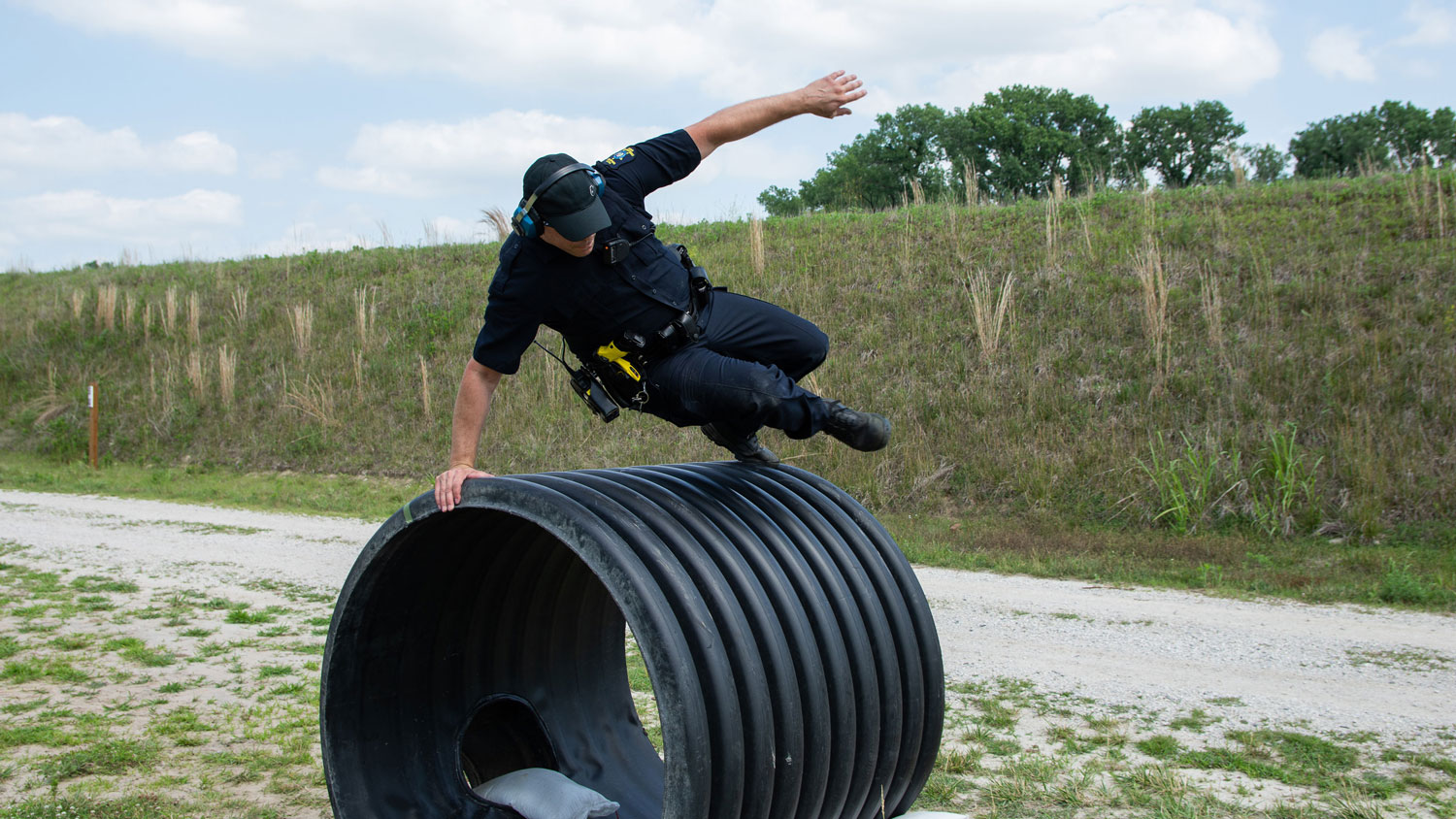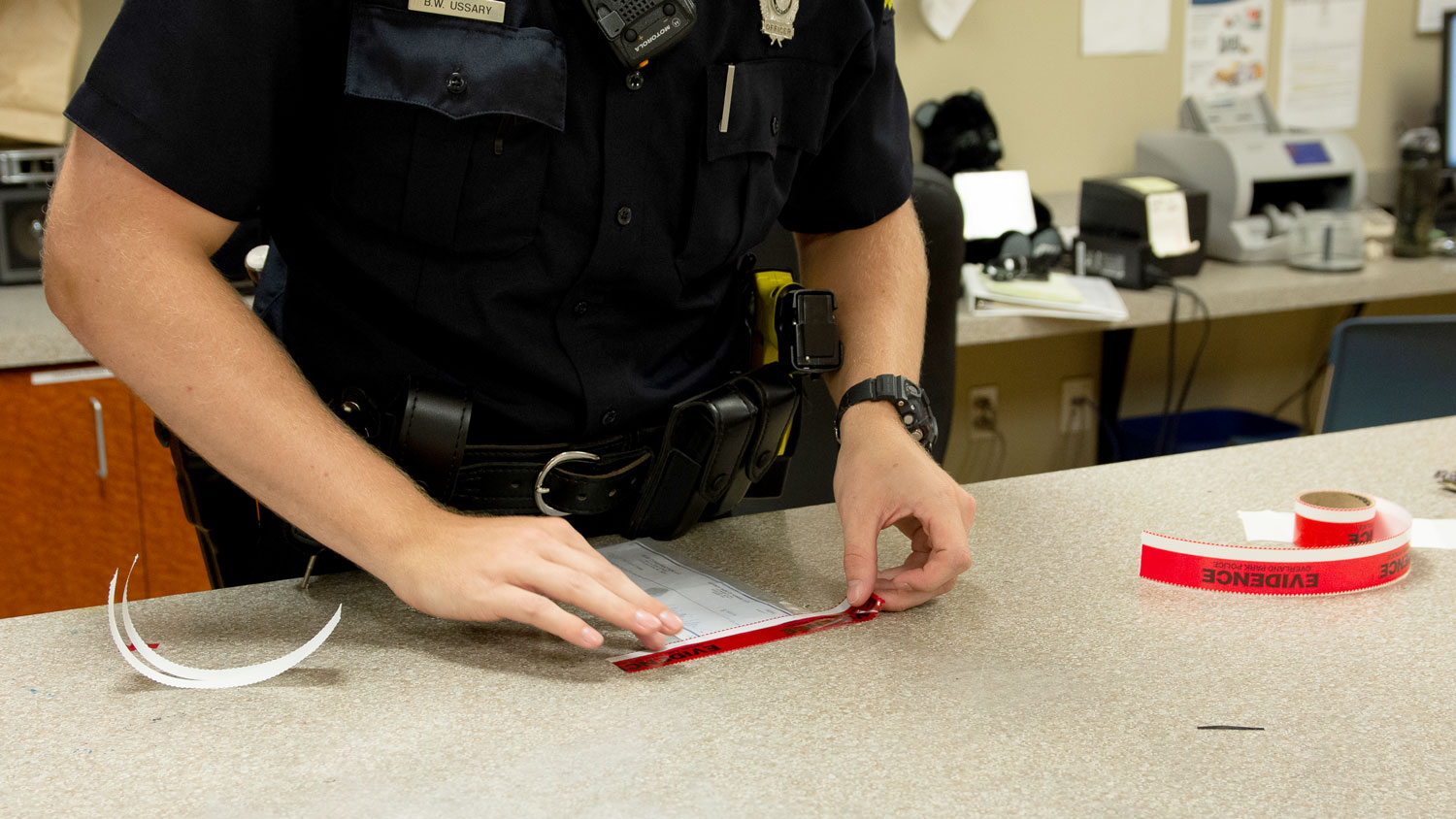Police Divisions
Police Divisions
All members of the Overland Park Police Department work within a division of the department. Each division is responsible for a different aspect of police work essential to keeping our community safe.
Operations Bureau
The Antioch division and parkway division of the police department make up the operations bureau.
Bureau Commander
Simon Happer
[email protected]
Antioch Division
The Antioch division is responsible for patrol activities north of I-435, plus:
- Community policing north of I-435
- Crisis intervention team and mental health co-responders
- Shawnee Mission School District school resource officers
- Traffic safety unit and motorist assist unit
Parkway Division
The parkway division is responsible for all patrol activity south of I-435, plus:
Services Bureau
The services bureau is comprised of a variety of divisions and sections with essential roles that ensure smooth policing operations in Overland Park.
Bureau Commander
Eric Houston
[email protected]
Criminal Investigation Division
The criminal investigations division responds to and coordinates investigation of major incidents and follows up on crimes initiated through patrol reports.
Support Services Division
Support services provides dispatching services, catalogues and stores evidence and property, processes crime scenes and evidence, maintains police records, ensures technology needs are met, and recruits civilian and commissioned applicants.
Office of Professional Standards
The professional standards office trains Police Department staff, develops policies governing conduct, and investigates complaints into the Police Department.

Patrol
Patrol officers are the most visible in the police department. Operating out of both the Antioch and parkway divisions, patrol officers’ first priority is to respond to calls for service. The primary responsibility of all officers is to safeguard the lives and property of the residents and visitors of Overland Park.
Patrol officers investigate criminal activity, respond to vehicle crashes, conduct traffic enforcement, and make arrests when appropriate. They maintain a proactive approach to crime prevention by being visible in the community. Officers address concerns and gain vital information regarding criminal activity through daily interactions with the public. Patrol officers handle more than 50,000 calls for service each year.

Traffic Safety Unit
Traffic safety officers investigate vehicle crashes in Overland Park.
They have specialized training in advanced crash investigation and reconstruction, as well as specialized high-tech equipment to investigate serious and deadly crashes.
Traffic safety officers provide traffic enforcement, targeting problem areas. They use speed display units to give drivers feedback and encourage compliance with traffic safety laws. They also use speed recording devices to evaluate complaints and determine if speed is a problem in a specific location.
The police motorcycle unit works in traffic safety. These officers have special training in the operation of a police motorcycle.
Motorist Assist Unit
The motorist assist unit provides services to drivers in Overland Park, including help with limited quantities of fuel, tire changes, and other minor roadside issues. They also provide traffic control at crash scenes and other events.
Motorist assist officers are part-time employees and volunteers who drive specially-equipped pickup trucks. They work on weekdays and during peak traffic times.

Emergency Services Section
The emergency services section of the police department focuses on three distinct and specialized disciplines: special weapons and tactics, or SWAT, explosive ordinance disposal, and dive rescue and recovery operations. The emergency services section supports not just Overland Park, but is a regional asset for water rescue and recovery and explosive ordinance disposal operations
Emergency services works with community policing and the criminal investigative division to serve high-risk search warrants. You may also see emergency services officers at community and recruiting events,

Criminal Investigation Division
The criminal investigation division responds to and coordinates the on-scene investigation of major incidents and conducts follow-up related to crimes initiated through patrol reports. Detectives gathers and preserves evidence, identifies and apprehends offenders, assist victims, regains stolen property, and prepares cases for prosecution and conviction.
This unit investigates
- Violent crimes
- Family crimes
- Property crimes
- Domestic violence crimes
- Economic crimes
- Narcotics and vice crimes
- Crime analysis, which provides accurate tactical, strategic and administrative analysis of crime and incident data support
Overland Park detectives are also assigned to many federally-funded multiagency task forces for the FBI, Drug Enforcement Administration, and Bureau of Alcohol, Tobacco, Firearms and Explosives, Social Security Administration, and more.
Support Services Division
Communications Section
The communications section is staffed by highly-trained and dedicated dispatchers who serve as the vital link between our community with the emergency services they need.
Dispatchers answer 911 calls originating within Overland Park while monitoring multiple radio talk groups to stay in communication with officer in the field as well as public safety agencies across metropolitan Kansas City. The communications center operates 24/7 to serve Overland Park. It is also a backup to Johnson County, if needed.
Property + Evidence Unit
The property and evidence unit is responsible for the accountability, security, and organization of all property and evidence obtained or recovered by the department. This unit is critical to the prosecution of crimes and ensures the proper disposal of evidence at the end of prosecution. It also ensures recovered property is returned to the appropriate owner.
Contact the property and evidence unit at 913-344-8787.
Crime Lab
The crime lab processes crime scenes, collects evidence in the field, and processes evidence in the crime lab. Crime lab detectives work closely with the Johnson County crime lab for the specific analysis and processing of evidence.
Records Unit
The records unit is responsible for the maintenance and custody of all police records, videos, and other case information documents. The Records Unit is the community’s point of contact for the dissemination of police records.
The records unit also handles the fingerprinting for community members who are required to obtain fingerprints for employment, licensing, or other requirements. Report technicians are responsible for handling walk-in station reports.
Contact the records unit by calling 913-327-6881 or faxing 913-327-5715.
Technology Section
The technology section is responsible for ensuring the technology needs of the department are met and well maintained. Staff research and test existing and new technologies to ensure the department makes informed decisions for the implementation, renewal, maintenance, and replacement of all technology used throughout the department. The section is staffed with two Detectives who are specially trained in collecting, analyzing, and preserving video and audio evidence.
Personnel Section
The personnel section is responsible for recruiting and processing civilian and commissioned officer applicants for positions with the Police Department prior to being hired. This section includes a captain and detectives who recruit applicants, operate polygraphs, and coordinate volunteers who support operations across the department.
Contact the personnel section by calling 913-327-6907
Budget + Grants Section
The budget and grants section is responsible for all purchasing, budgeting, and grant administration for the department. This section also administers the false alarm prevention program, enforcing the City’s false alarm fines for alarms that are connected to emergency assistance.
Contact the budget and grants section by calling 913-327-6832.
Office of Professional Standards
The office of professional standards is responsible for policy development and accreditation, training, investigation of complaints about Police Department staff, and internal department audits.
The Overland Park Police Department is proud to be Commission on Accreditation of Law Enforcement Agencies-accredited. An accreditation detective works to keep policies up-to-date with CALEA standards. Field training staff are responsible for new officer training, and planning and tracking ongoing deparment training for mental health, deescalation, defensive tactics, firearms, and other gear.
The office of professional standards investigates complaints about officers and reviews commendations of officers. File a compliment or complaint.
